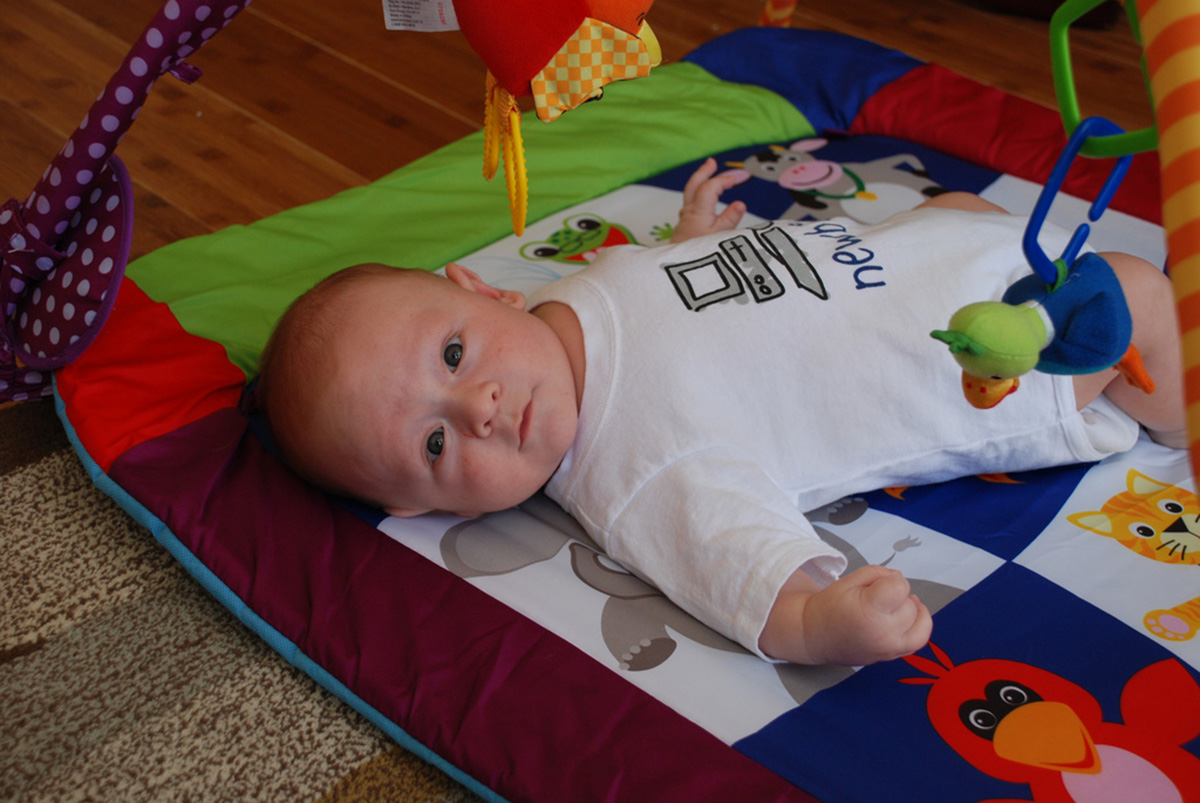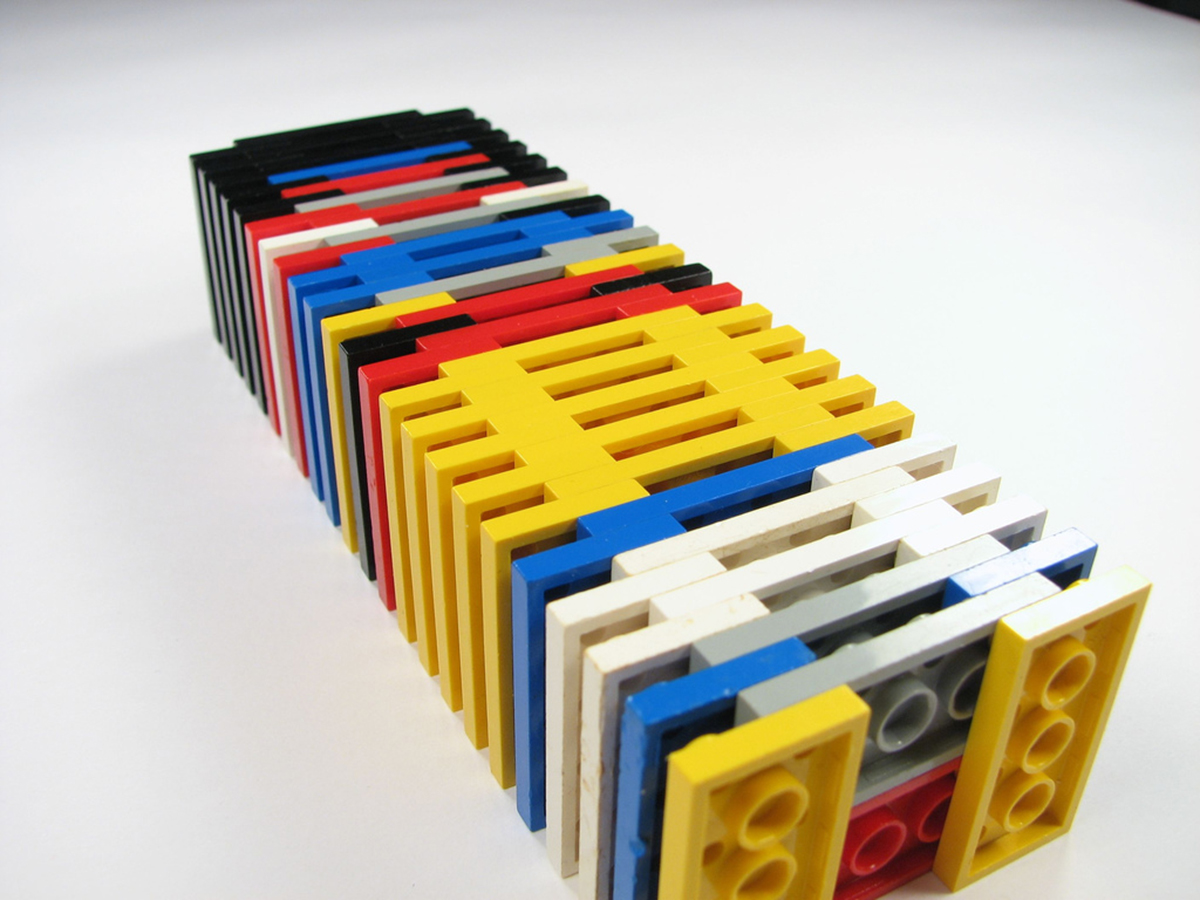"My four year old is able to count to 1,000," a mother on a parenting forum I belong to recently reported, adding: "Is this highly unusual? What should I do now?"
The implication was clear to the rest of us: this mother believed she had a "special snowflake" on her hands, was convinced that her child was "gifted", though she was quick to admit, after being asked questions, that they'd been working diligently, on a daily basis, to help her preschooler master the ability to count to 1,000.
Not long before this, another mom was asking about early childhood education, specifically wondering how she could give her child a head start on becoming multilingual. While this mother initially did her best to avoid giving details on her child's age, it eventually emerged that she was, in fact, six months pregnant and indeed talking about teaching a fetus.

A whole industry exists to appease the "needs" of parents like these; Baby Einstein is only the start.
Alex Proud, writing in the British Daily Telegraph, said:
"Your child is not a genius.
I’m not being mindlessly provocative here, I’m being honest. Depending on the definition of genius you use, the frequency of the ultra-clever in the general population ranges from about one in 750 to one in 10,000. I don’t know 750 or even 75 kids. So, even allowing for you being cleverer than normal, your child is almost certainly not a genius. In fact, even if you take the wishy-washy, special-snowflake, Andy-Warhol-was-a-genius definition of genius, I would still bet heavily against your child being a genius. And what is more, you shouldn’t want your child to be a genius."
I'm not getting into fixed vs growth mindsets today, into whether "gifted children" are born or made, or even into whether Proud is right about your child — who, perhaps, really is a genius. Rather, I'm here to argue against the idea that lots of "sit-down" work with a formal academic flavor equals lots of learning, in turn producing accelerated, ahead-of-their-peers, kids. Rather, such activities can lead to very premature academic burnout, which is a shame, because it's very possible to help your preschoolers learn more, in a different and often underestimated way: through play.
Play: The Most Powerful Educational Tool For Preschoolers?
People of any age most effortlessly absorb the skills and knowledge they're most interested in. No big mystery there.
Through play, preschoolers can and do:
- Develop problem-solving skills.
- Develop social skills, either by acting out scenarios with figures or stuffed animals, or by interactively playing together with other children or parents.
- Develop their gross and fine motor skills.
- Advance their vocabularies and other language skills.
- Begin observing the world around them in a scientific way, by noting what happens when they drop a marble down a marble run course, what happens if they mix playdough with water, what happens if they decide to cut a doll's hair, and so on.
- Begin developing number sense and basic mathematical abilities.
- Develop memorization skills.
Stealth Preschool Education Through Play
Play is a preschooler's natural domain. Not only have preschoolers not yet been exposed to the idea that learning is boring and difficult, they don't have to be either. "Hothousing" isn't required to help preschoolers achieve their full potential. The skills they're expected to master a little later in life literally become child's play when you sit down and play with your kid.
Let's take a look at what kids are expected to master in Kindergarten, for example:
- Literacy: Retelling a story that was read aloud, knowing the letters of the alphabet in upper and lower case, being able to decode simple words with a focus on CVC words (consonant, vowel consonant — such as "cat"), a beginning understanding of phonics, and writing their first and last names.
- Numeracy: Decoding numbers up to 20, and being able to count and skip count (by two, five and ten) to 100, as well as recognizing basic shapes, arguably beginning geometry.
- Life skills: Holding writing and drawing utensils correctly, recognizing colors, cutting neatly along lines, taking turns and sharing with peers, and following multi-step directions.

Imagine the possibilities here.
For Kindergarten math (even before your child reaches Kindergarten age), you could host doll tea parties. Two dolls are late. How many came on time? One doll already has a plate. How many still need plates? One fell ill and needed to see a doctor, and her friend went with her. How many are left? You could make pouches with different amounts of Lego bricks in them. Can your child find the bags that contain more, and less, than the baggie you handed them? Can they find the pouches that have the same number of bricks? Start playing with bigger and smaller Lego bricks, and you're actually working on beginning fractions!
Simple letter squares, which come ready-made in games such as "Bananagrams" or "Scrabble", but which you can also easily make yourself, can be used to play around with short words. Hand your child the letters "B" and "T" and a set of vowels, and invite them to see what words they can successfully make. Bat, but, bit, bot, bet, tab, tub — wow, cool!
And then... then you can move on to other exciting things, like learning about the planets in the solar system, or your local geography, or bugs and birds.
Expensive formal preschool learning programs aren't required, and neither is using methods young children might well experience as torturous or at least "not fun". Play is the natural domain of preschoolers, and it's all they need to master the skills they need at their age. Best of all? You, too, can have fun in the process!
- Photo courtesy of neepster: www.flickr.com/photos/neepster/3517016981/
- Photo courtesy of oskay: www.flickr.com/photos/oskay/2156904341/
- Photo courtesy of oskay: www.flickr.com/photos/oskay/2156904341/


Your thoughts on this